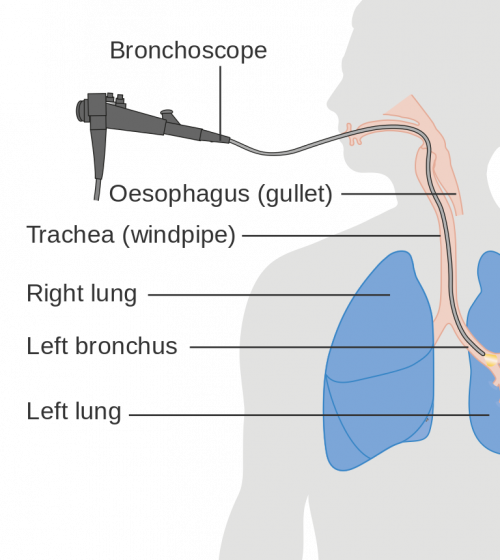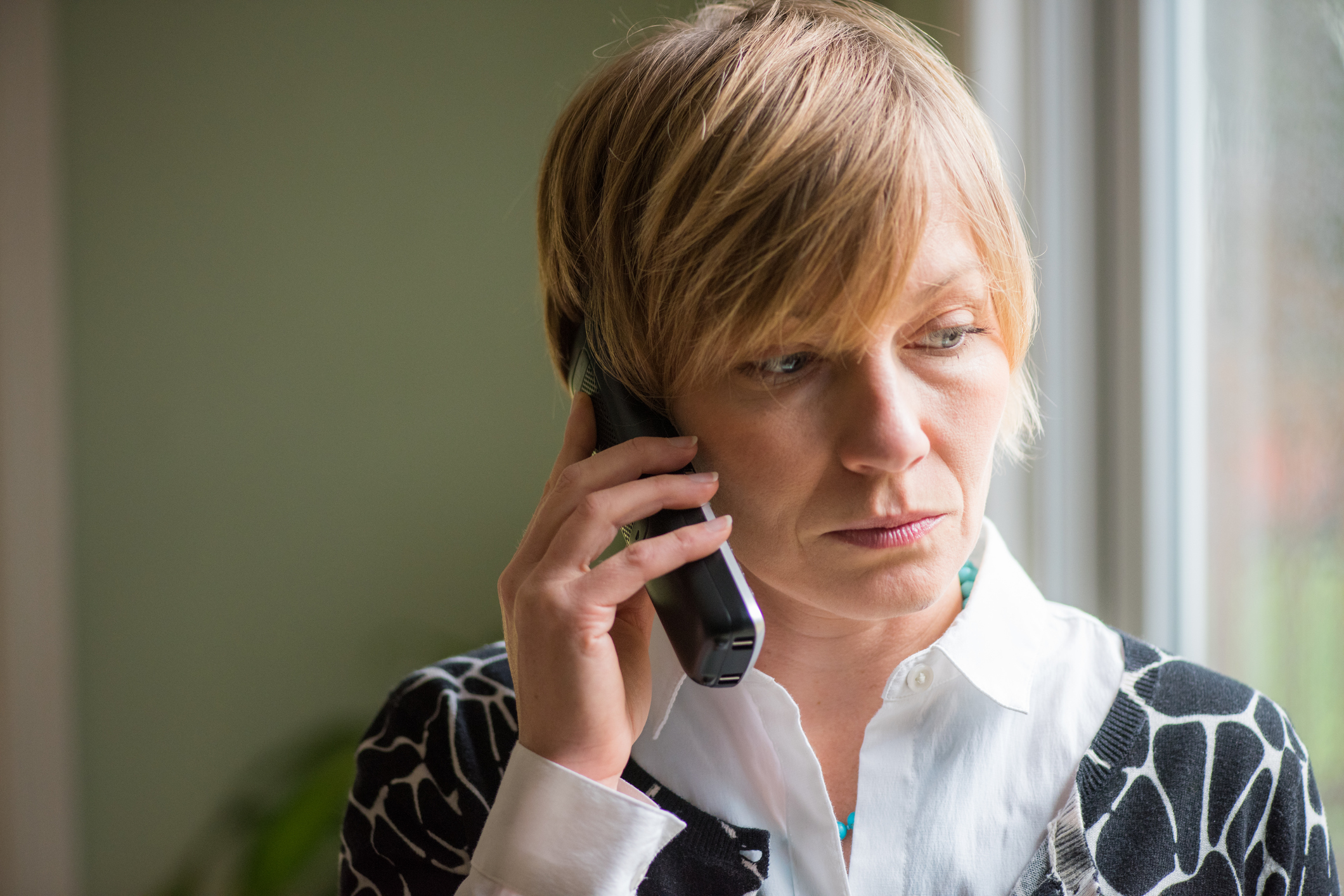Bronchoscopy
A bronchoscopy is a test that looks directly at your airways and lungs.

Image courtesy of CRUK / Wikimedia commons
A bronchoscopy is used to look directly at your airways and lungs. A thin, flexible tube called a bronchoscope is passed through your nose or mouth, down your throat and into your lungs.
The bronchoscope has a small camera at the end, which allows the doctor to view your airways.
Biopsies can also be taken using the bronchoscope.
Before the test
Tell your hospital team about any medications you are taking. You may have to stop taking certain medications, such as blood thinners, before your bronchoscopy. Your hospital will advise you about this.
You will not be allowed to eat for a few hours before the test. The hospital will tell you how long you need to stop eating for – it’s often around 6 hours. After this you should only take water. Then 2 hours before the test you should stop drinking too.
You will have a sedative injection before the test to relax you. Your doctor will also numb your nose or throat with a spray or gel.
You may have a plastic device in your mouth to keep it open.
During the test
The tube is passed through your nose or mouth and then down into your airways and your lungs. This may make you cough. A camera at the end of the tube can take photos, and samples from the lung tissue (biopsies) can be taken.
After the test
Once the sedation wears off, you can go home. Make sure you arrange for someone to take you home as you’re not allowed to drive for 24 hours after a sedative.
Your doctor may tell you what they saw before you leave. If biopsy samples are taken, it will take about 2 weeks for the results to come back.
Are there side-effects/risks?
Your nose and throat may feel a bit sore for a day or so after the test and you may have a hoarse voice for a few days. You may have a dry mouth for several hours after the procedure. You may also cough up some blood the next day if you had a biopsy during the test.
A rare complication can occur - especially if you are having a biopsy. The complication involves the leakage of air, resulting in a collapsed lung (pneumothorax).



Talk to a Cancer Nurse

Support Line
Our Daffodil Centres


